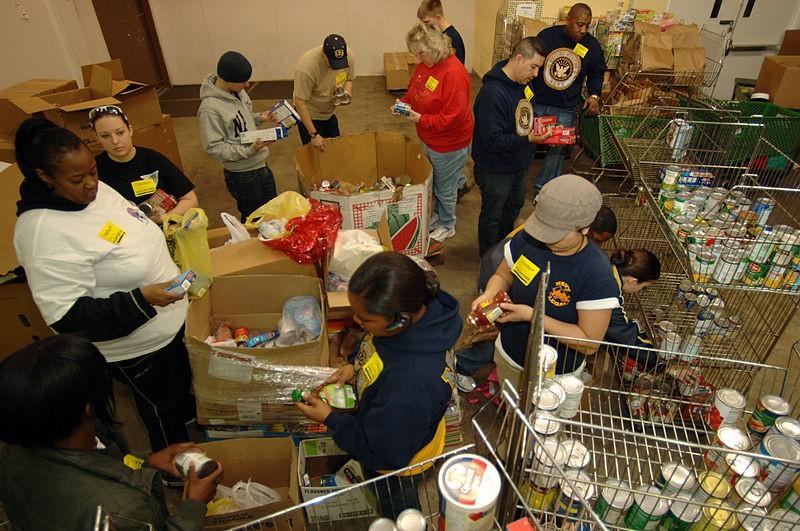The United States is unique in the scope of its experiment; the whole democratic process, starting back in the 1770s, was as harebrained in its day as it is taken for granted now.
The ability of individuals to directly choose leaders and representatives was a behemoth of a task for a young nation to administer, so the citizens of this nation divided themselves into proactive organizations and groups to help pass down the dedication and zeal that would be required to keep this massive machine moving.
Although we often think about the classroom as being the place where we learn the most, any one of the 90% of Americans who attended public school knows that very little that is taught in those halls is taken to heart, especially such a complicated concept as political activism.
Most information about how one should act as a person and as a citizen comes from the home and from social groups; those are the people who shape us and what we want to be. The United States is a multilayered democracy that relies on the participation of all its citizens to actually serve as a representation of popular will and the voice of the people.
Back in 1991 the Census Bureau bemoaned the voting rate in congressional elections dropping to 45%, writing that it was lower than it had been in decades prior. Just as a sign of how things have changed, only 36% of all eligible Americans voted in the key 2014 midterm elections which brought in the largest Republican majority since 1928.
It’s even more depressing at the local level, where on good years only 20% of all registered voters even bother to cast a ballot, according to City Lab.
RELATED: Unpopular Opinion: Voting kinda sucks
But the ballots that are cast tell an even grimmer story: the average age of voters in local elections back in 2016 was 57 years old, and in 2012 the only group who managed to break the 50% turnout rate were those over the age 44.
That means younger voters are disenchanted, disconnected and turned off from the democratic process that keeps this country moving. Even those who say that this low turnout among the young has been a trend among all generations fail to take into account that back in 1966 over 30% of voters aged 18-24 voted in congressional elections, while in 2010 that number couldn’t even break the 20% mark, according to the U.S. Census Bureau.
If people stop participating in government, government falls apart. As a representative democracy, our leaders need the voices of the people to be loud, clear and present, otherwise we will have a government that is irresponsible and inefficient.
While we often hear about cases of popular wrath being raised and utilized to get rid of the odd representative or senator, the random spike and fall of public interest is not a solution to the problem; we need a generation of voters and Americans who are actually invested in the political process and become active members of the United States civic society.
RELATED: OPINION: Rediscovering the art of protest
The best way to live up to the structure which Alexis de Tocqueville, the famed French political scientist, described in his seminal Democracy in America, is by encouraging this democratic spirit both at home and through our participation in social organizations or philanthropic groups that cultivate an investment and dedication to our form of government.
De Tocqueville wrote that for a democracy to function, “Every individual is, therefore, supposed to be as well informed, as virtuous, and as strong as any of his fellow-citizens. He obeys the government, not because he is inferior to the authorities which conduct it, or that he is less capable than his neighbor of governing himself, but because he acknowledges the utility of an association with his fellow-men.”
Examples of these institutions are as many as they are varied, from the Boy Scouts of America to the Lion’s Club International and even the countless Rotary Clubs around the world, as they all help teach members about responsibility and participation.
But in the United States, participation in these organizations as well as volunteerism as a whole is shrinking every year; the U.S. Bureau of Labor Statistics put out a study that showed that only 25% of Americans had volunteered for a philanthropic organization or nonprofit group between 2014 and 2015.
This number drops even further when we look at the 20-24 age group, who were recorded at only 18%. CNN reported that the typical volunteer was married, had children and likely came from Utah, a state who topped off at the highest volunteerism rate among the 50 states. Over the last 5 years, the volunteering rate has decreased across all demographics.
Yoni Appelbaum wrote an op-ed for The Atlantic describing the many hoops and hurdles of the democratic system as being part of “a most unnatural act” which has to be learned over years of shared experiences.
He wrote of the decline of civic participation in the 20th and 21st centuries and concluded that as voters drop out of the civic society that our nation so desperately relies on, our leadership will begin to collapse and the principles that keep the countless groups within the United States together through thick and thin will decay.
Our current chaotic situation is not random chance. As voters lose interest in the democratic process, they refuse to remain invested and logical voters and will instead give in to emotional or half-hearted decision making. Incompetent demagoguery will be their natural offspring.
Alec Scott is a junior majoring in Political Science and German Studies who volunteered on the 2014 Ron Barber Congressional Campaign. Follow the Daily Wildcat on Twitter.









